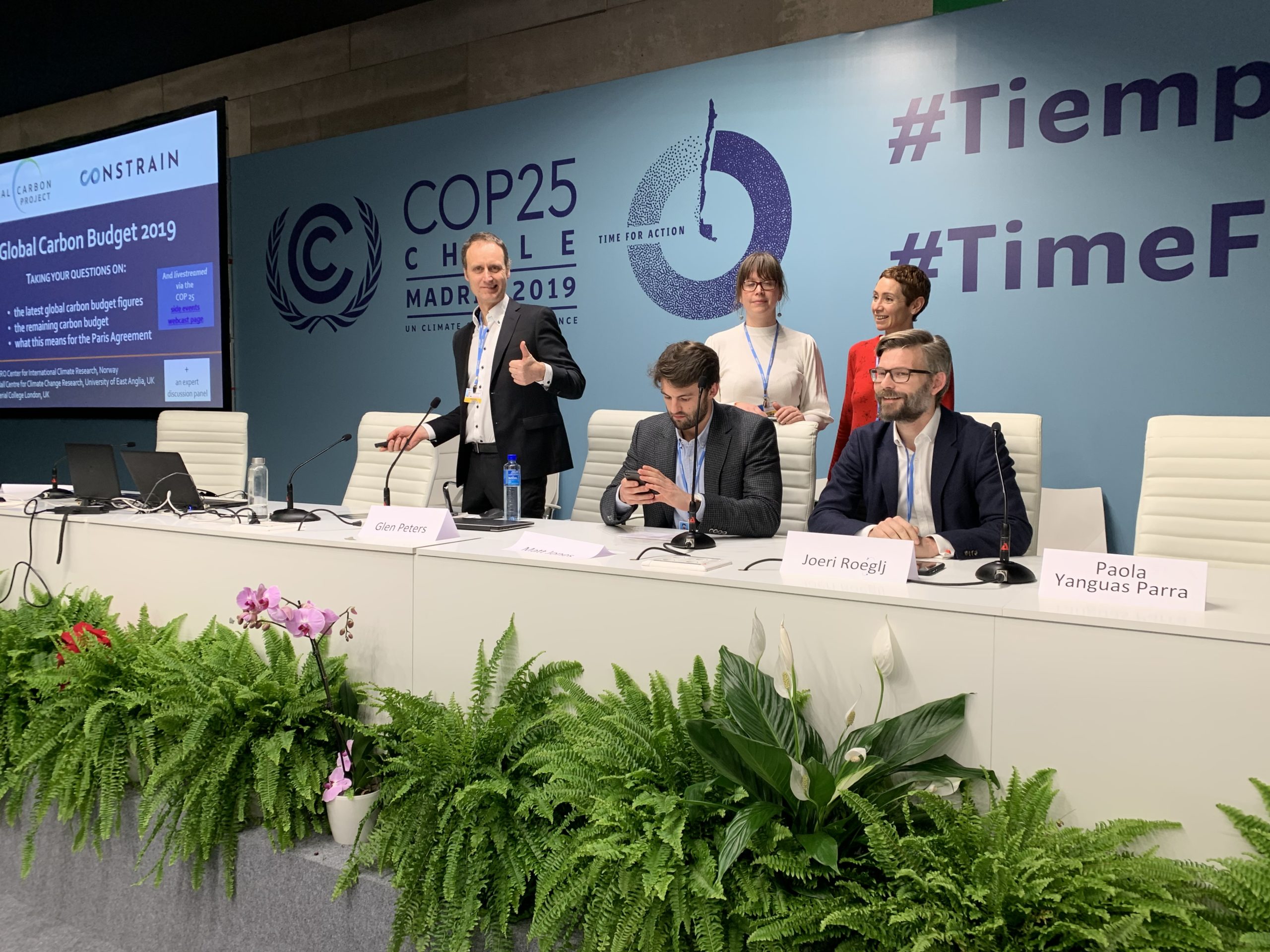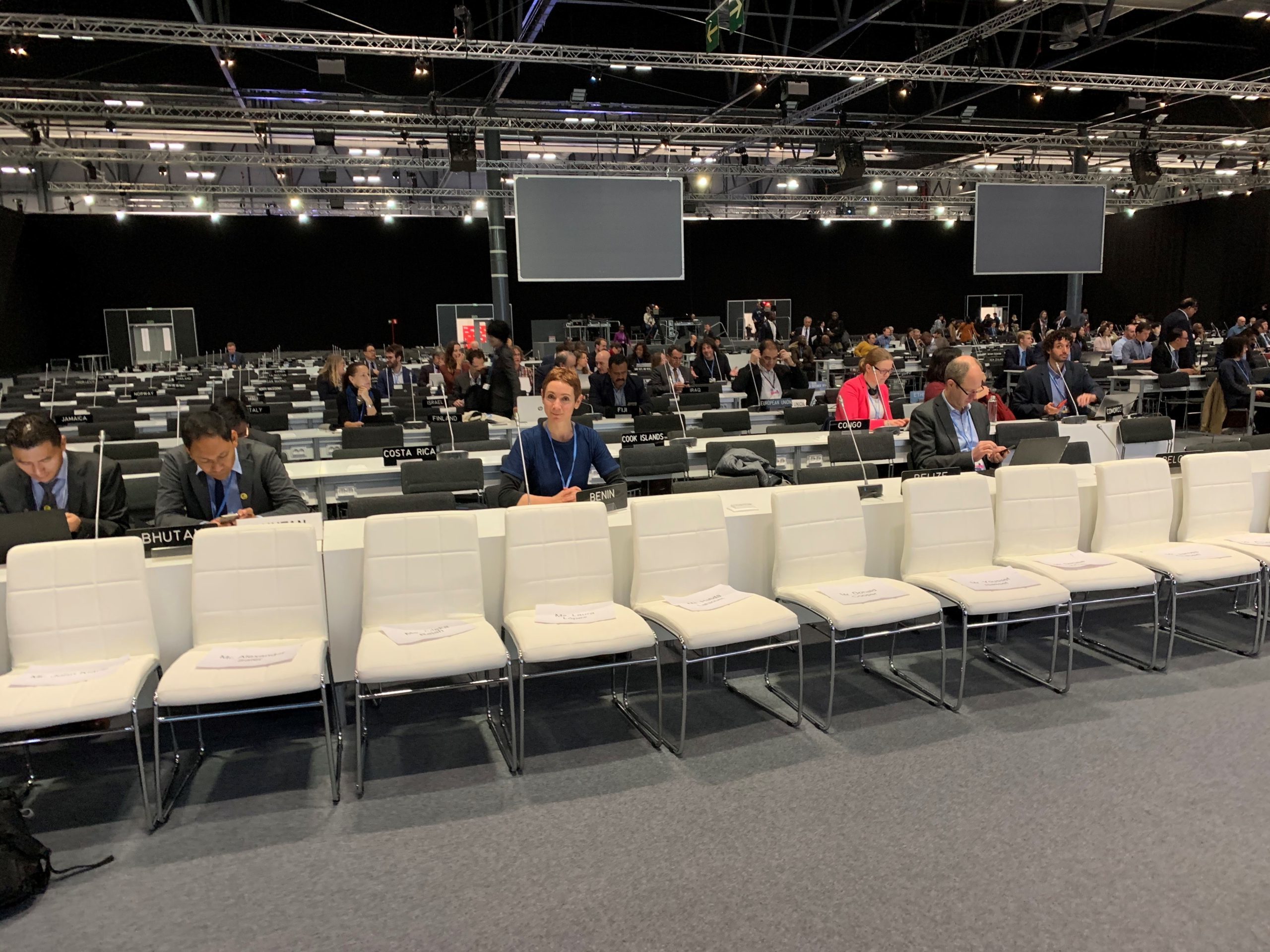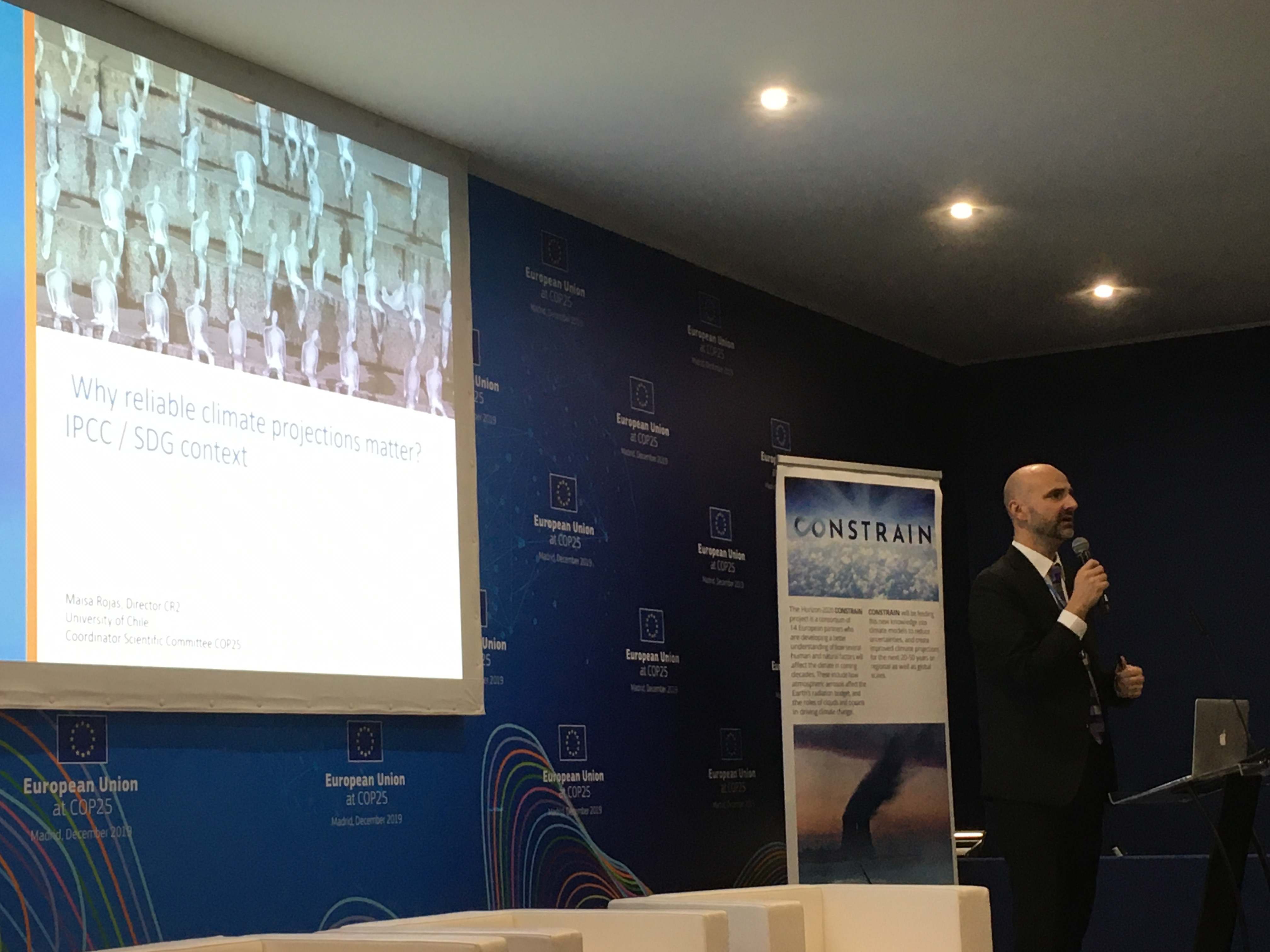Gearing up for Glasgow: reflections on COP25

The 25th Conference of the Parties (COP) took place from 2-13 December 2019 in Madrid. For a relative newcomer to both climate science and COP itself, it was a huge opportunity to observe, absorb and learn.
First, some background: COP25 aimed to both address unfinished business in implementing the Paris Agreement, resolving issues around Article 6 and carbon markets (see this Carbon Brief explainer), and also build ambition ahead of 2020, when countries need to submit updated national climate action plans known as Nationally Determined Contributions.
Piers Forster and I were at COP25 to promote the Horizon 2020 CONSTRAIN project, and in particular the issues raised in the first CONSTRAIN Report: the remaining carbon budget and near-term warming rates. Two official events provided us with a platform to engage with delegates from across the globe.
Due to social unrest in Chile - highlighting the need for a just transition – COP25 changed continents at short notice. Whilst we felt our hands were full dealing with uncertainties over who was coming, and where, when and even if our events would take place, the Chilean and Spanish Governments managed to ensure that not only the negotiations but also the huge array of activity that accompanies them went ahead.

Debbie Rosen as (very briefly) the delegate from Benin.
The first of our events focused on near-term warming rates and the implications for mitigation and adaptation decisions (see this Nature Climate Change Commentary), whilst the second, in partnership with the Global Carbon Project, discussed the global carbon budget (you can watch a recording of the event here).
A consistent message emerged from both these events and many others that I attended: we need to be better at translating science into formats that are both accessible and relevant to those who can make use of it. As one of our panelists observed, we may find it interesting to talk about the latest model results in detail, but just how useful is it to practitioners? Another explained how difficult it is to get high level science into formats that decision makers can actually use. And my favourite quote of the week, which came from an event run by the Union of Concerned Scientists: “we need narratives as well as numbers”.
CONSTRAIN has a strong emphasis on engagement and communication, but we clearly have a lot to learn. We need to be smarter about how we use COP to ensure our research supports policy and practical applications, particularly where adaptive capacities are low. Yes, it’s an opportunity to present the latest findings, but perhaps we also need to talk less and listen more.
More broadly, I learned that, no matter how important the subject, a lot of people trapped in a conference centre doesn’t necessarily make great headlines, particularly in the run up to a general election (note that we were there pre-Greta Thunberg). The additional challenge of COP25 coinciding with the election meant that UK officials were much less visible or vocal than we would normally expect of an incoming COP presidency, and several delegates expressed their frustration at this.

Leo Hickman chairs the side event on net-zero policies, emission targets and adaptation risks in light of the newest climate model results.
Still, there was much to celebrate: stories of action already taking place, by sectors, cities and states; campaigns for climate justice; and of course a vibrant and growing youth movement. Chilean representatives, finding themselves unexpectedly on the other side of the world, meanwhile conveyed messages of hope emerging from the unrest, as well as the need for stronger social dialogue and consensus on climate change. And alongside tipping points in the climate system, tipping points were also discussed in the context of accelerating societal change and transforming fossil fuel-based systems into climate resilient, low carbon ones.
On a practical note, the scale of COP makes it impossible to reflect on all the details here. Whilst the logistics felt more manageable than I expected, trying to navigate the many, varied and simultaneous strands of activity, as well as acronyms, was far more difficult (the IIED have produced an incredibly useful booklet, but just like any guide, it only made real sense after I had been there for a week).
At the time of writing, COP25 is well into its second week. We have returned home, but are following the conference closely as the talks reach their conclusion. I am left feeling uncomfortable, but perhaps in a good way - with a commitment for CONSTRAIN to do more and do it better in Glasgow next year.
Debbie Rosen is Science and Policy Manager for CONSTRAIN
Main image: The Global Carbon Budget side event
